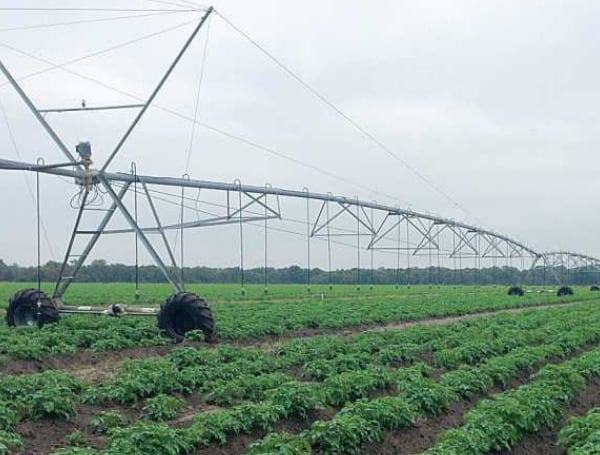U.S. Senator Tammy Baldwin (D-WI) and Senator Amy Klobuchar (D-MN), along with 17 other Senate colleagues, today sent a letter to the Trump Administration demanding clarity on the effects of its recent tariff policies on American farmers. The letter, addressed to U.S. Trade Representative (USTR) Ambassador Jamieson Greer, expresses “great concern” over what the Senators term the Administration’s “reckless tariff agenda.”
The Senators highlighted the precarious timing of the tariffs, coinciding with the crucial spring planting season. “Farmers not only have billions of dollars in commodities from last year waiting to be sold, but also have started spring planting and rely on stable markets for their planning,” the letter states.
READ: Major Universities Sue Department Of Energy Over “Devastating” Cut To Research Funding
They emphasized that farmers have already made significant financial commitments based on expected market stability, including purchasing seeds and fertilizer and selecting crop insurance.
The letter points to the immediate negative consequences following President Trump’s April 2, 2025, announcement of across-the-board tariffs and earlier duties on goods from Canada and Mexico. Retaliation from key trading partners, warned about for months by farm groups and economists, has already begun.
Notably, China announced a 34 percent retaliatory tariff on U.S. products on April 3rd. The Senators cited the immediate impact on U.S. soybean futures, which dropped significantly, representing an estimated $300 million loss on unsold 2024 soybeans and a potential $1.4 billion hit on the 2025 crop based on that single day’s drop. Cotton markets experienced similar declines.
“The direct economic impact and uncertainty on America’s farmers stands to change the future of agricultural trade relationships for generations,” the Senators wrote, adding that ongoing market volatility caused by shifting tariff announcements exacerbates the situation.
READ: Federal Judge In Massachusetts Blocks Trump Admin’s Plan To End Biden-Era Parole Program
Compounding the issue, the Senators noted that many farmers are entering this period of uncertainty in a weaker financial position than during the 2018-2019 trade war, facing tighter margins from lower commodity prices and higher input costs.
They also expressed concern that the current trade dispute will further entrench market share losses to competitors like Brazil and Argentina, undermining decades and billions of dollars worth of investment in trade promotion programs by taxpayers and farmers.
The letter poses several pointed questions to Ambassador Greer, seeking transparency on the Administration’s strategy and its anticipated consequences:
- Was any analysis conducted on the tariffs’ impact on farmers before implementation?
- What are the expected short- and long-term impacts on the agricultural sector?
- Is the tariff policy intended as temporary leverage for negotiations or a permanent structural shift?
- If used as leverage, what are the specific agricultural priorities and target markets for negotiations?
- Has the Administration analyzed the feasibility and necessary infrastructural changes (like domestic processing for cotton) required for President Trump’s suggested shift towards domestic markets for farmers?
- How will tariffs on imported specialty crops affect consumer prices and availability, given that U.S. farmers cannot produce many of these items year-round?
- Was there coordination between USTR and the USDA regarding recently announced trade missions to countries now facing high U.S. tariffs?
READ: Liberty Justice Center Urges Supreme Court To Hear Mississippi Christian Free Speech Case
The Senators concluded by expressing “serious concerns about the haphazard approach taken by the Administration” and requested a prompt response to their inquiries. The full text of the letter was made available by the Senators’ offices.
Please make a small donation to the Tampa Free Press to help sustain independent journalism. Your contribution enables us to continue delivering high-quality, local, and national news coverage.
Connect with us: Follow the Tampa Free Press on Facebook and Twitter for breaking news and updates.
Sign up: Subscribe to our free newsletter for a curated selection of top stories delivered straight to your inbox.
